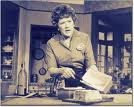"Reading is the whetstone on which a writer hones his sword."
On my way home this past week from our monthly book group meeting, I thought of how many different views of a story entered into our discussion. This month, we read The Elegance of the Hedgehog by Muriel Barbery. For me, a wonderful read! For some others in the group, not so great! But, then, the beauty of the group is sharing differing opinions and feeling comfortable enough to express them.
My particular group is not composed of writers. In fact, I think I'm the only writer who attends. Each member brings a unique perspective to our discussion. If you are a writer, joining a book group is a great way to build skills.
By being part of a book group, you can learn more about:
1. Character and Motivation:
We ask each other what motivated this character. And was this character believable? Why did the author choose that particular motivation and was it strong enough to carry the reader through?
2. Analytical skills:
Sharing your views about what you've read enhances your skill to step back and view the book as a topic of discussion. Attaining that distance helps much more than the solitary pursuit of studying other authors.
3. Plot and structure:
No author can get a poor plot past a book group's collective eyes! We ask: was there enough action, enough conflict? Did the ending work for us? We question what theme the author intended us to take away from the story.
4. Voice and point of view:
The Help by Kathryn Stockton was a classic example of how to use voice and point of view to tell a spell-binding story. She did a masterful job of using dialect, as well, to bring her characters to life.
5. Marketability:
For aspiring writers, there's nothing better than learning what other readers like. Part of our discussion always involves how easy or difficult it was to get caught up in the book and why. Most of us are pretty committed to finishing the book so we can contribute at our meetings, so it's really telling when the consensus is that something didn't work to draw us in.
So, consider joining a book group to help hone your skills. I recommend looking for one that reads all types of genres.
Here is a list of some of my favorites from our group:
To Kill a Mockingbird by Harper Lee
The House of Sand and Fog by Andre Dubus
The Secret Life of Bees by Sue Monk Kidd
The Life of Pi by Yann Martell
The Color of Water by James McBride
The Curious Incident of the Dog in the Night by Mark Haddon
Middlesex by Jeffrey Eugenides
Master Butcher's Singer's Singing Club by Louise Erdrich
Water for Elephants by Sara Gruen
A Thousand White Women by Jim Fergus






















